New book untangles global hair trade
Primary page content
From Chinese factories to Jewish wig parlours, Hindu temples to Afro hair fairs, Goldsmiths anthropologist Emma Tarlo’s new book weaves together stories from the collectors, untanglers, knitters, traders, buyers and wearers of human hair.
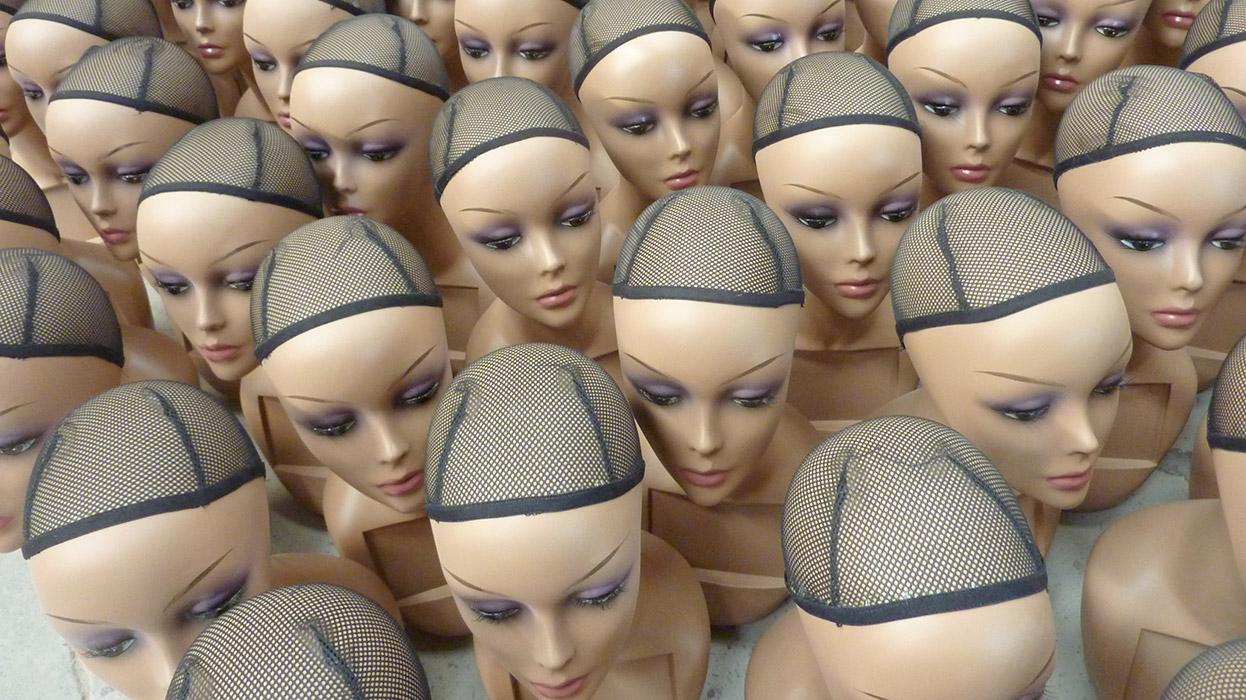
Entanglement: The Secret Lives of Hair sees Professor Tarlo travel the world, exploring a hidden yet expanding global trade that many of us know little about.
Bound up in religion, politics, beauty, health, mortality and identity, our hair means different things to all of us. And through the global hair trade it connects the lives of people with different aspirations and needs in distant parts of the world.
Today hair is harvested most profusely from poor women in South and Southeast Asia, or through Hindu temples in India or Buddhist initiatives in Myanmar, but shortages can see hair peddlers travel to ever more remote areas in search of supplies.
With balls of ‘comb waste’ still collected on doorsteps across Asia, a single wig sold in the UK at the end of its journey may contain the fallen hair of hundreds of different women.
Emma takes us on a journey from the nineteenth century - when clumps of waste hair were hooked out of gutters for recycling into wigs - to the modern day, via a short-lived 1960s obsession with synthetic fibres.
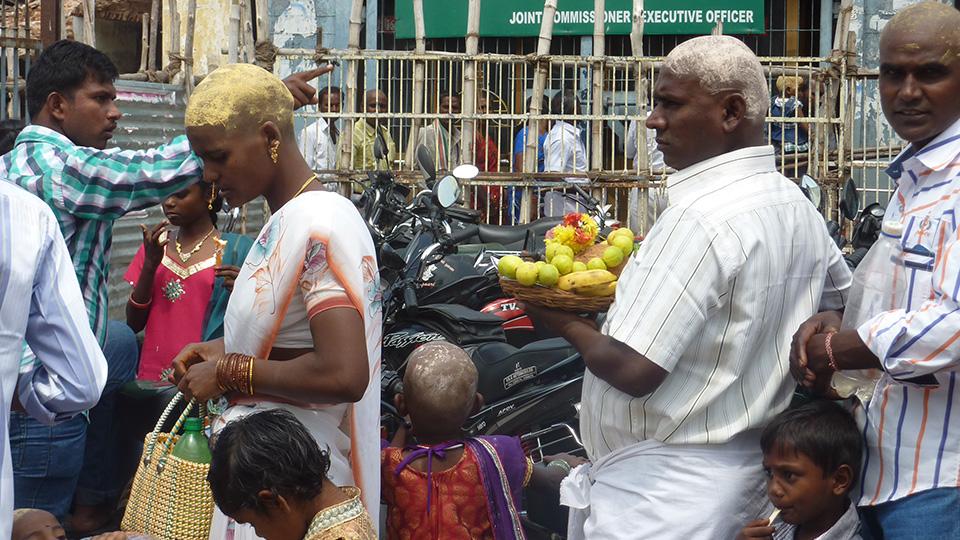
(Hindu pilgrims with tonsured heads at the Sammayapurum Temple in South India. All photographs © Emma Tarlo)
What happened when the US banned hair from communist countries? Or when an orthodox Jewish rabbi forbade Jewish women from wearing wigs made from Indian hair? Why is hair rarely labelled as Chinese in the shops when China is the world’s largest supplier of wigs and extensions? And why are Tasmanian Aborigines seeking to reclaim the hair of their ancestors from European museums?
Entanglement touches on the weird and wonderful, from the US company making wigs for dogs, to the hair trader in India who made his wedding outfit from human hair, to the more serious: the often-traumatic loss of a part of the body associated with beauty, vitality and youth.
The author explains: “Hair is an extraordinary fibre: we associate it with life yet technically it is dead; it is fine but uncannily strong, intensely intimate yet in global circulation where it becomes treated as anything from waste, sacred gift and memento to a commodity with a surprisingly wide range of uses.
"In the end the book is less about untangling the intricacies of the global hair trade than about exploring the nature of the entanglement.”
Described as “brilliant, fascinating” (Valerie Steel), “timely” (Caroline Cox) and “a most rewarding and edifying read” (Mukulika Banerjee, LSE), through Entanglement: The Secret Lives of Hair Emma Tarlo has “done an extraordinary job of reattaching hair to humanity” (Daniel Miller, UCL).
Professor Emma Tarlo is based in the Department of Anthropology at Goldsmiths. She has a specialist interest in the anthropology of dress, material culture and urban anthropology and has published widely in these fields.
Her research on the global hair trade was funded through a 2013-16 Leverhulme Trust Major Research Fellowship.
Entanglement is published by Oneworld in hardback and is available on Amazon and in all good book shops priced at £16.99.
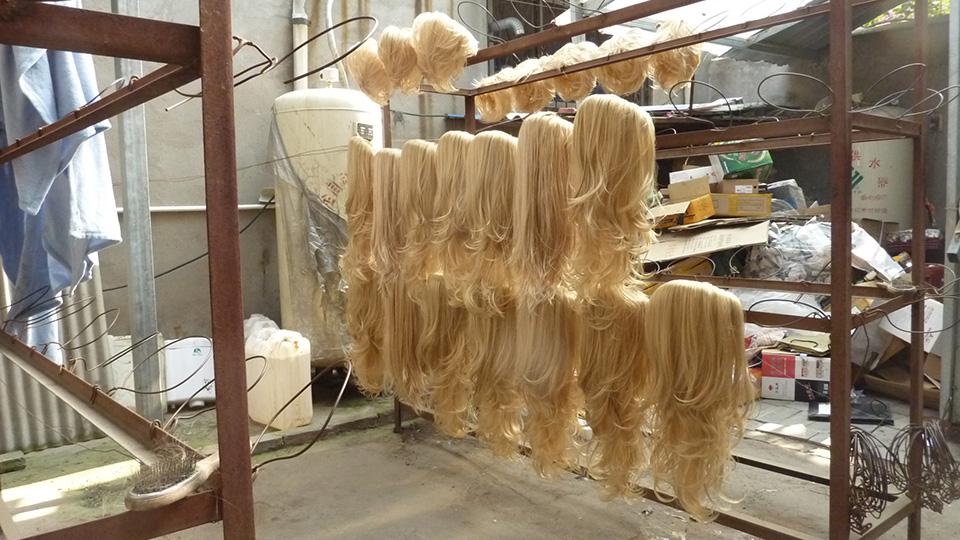
(Glamorous blonde wigs dry in the courtyard of a Chinese workshop in Xuchang. The wigs are made from bleached Chinese hair and are destined for the UK market)
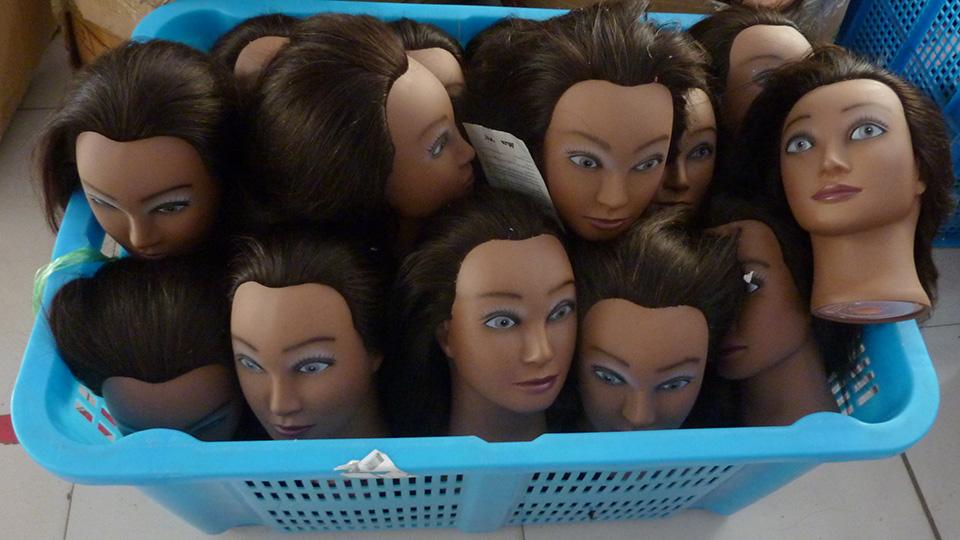
(Hairdressers' training heads, factory in Xuchang, China)
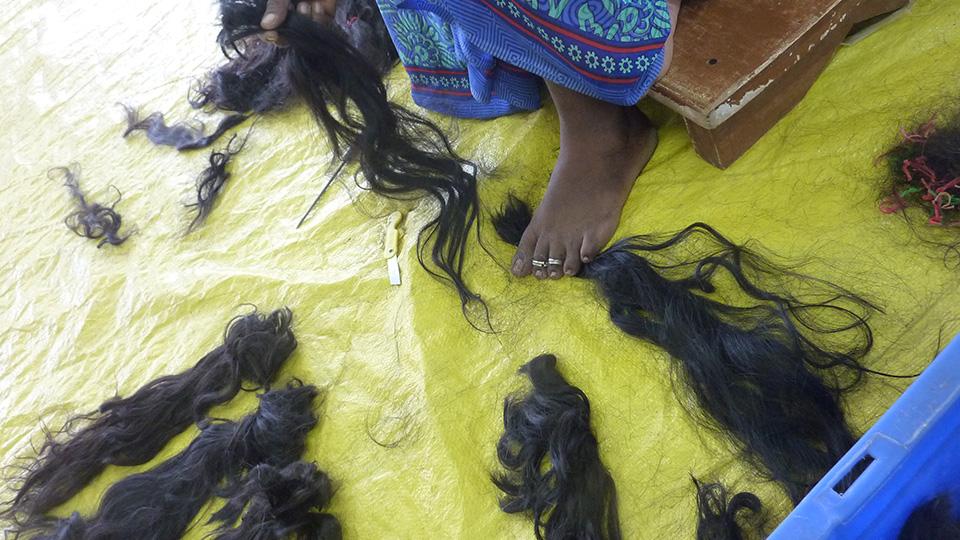
('Temple hair' from Hindu pilgrims being sorted in an Indian factory, Chennai)
How is human hair commodified? Professor Tarlo discusses her research on the global human hair trade.